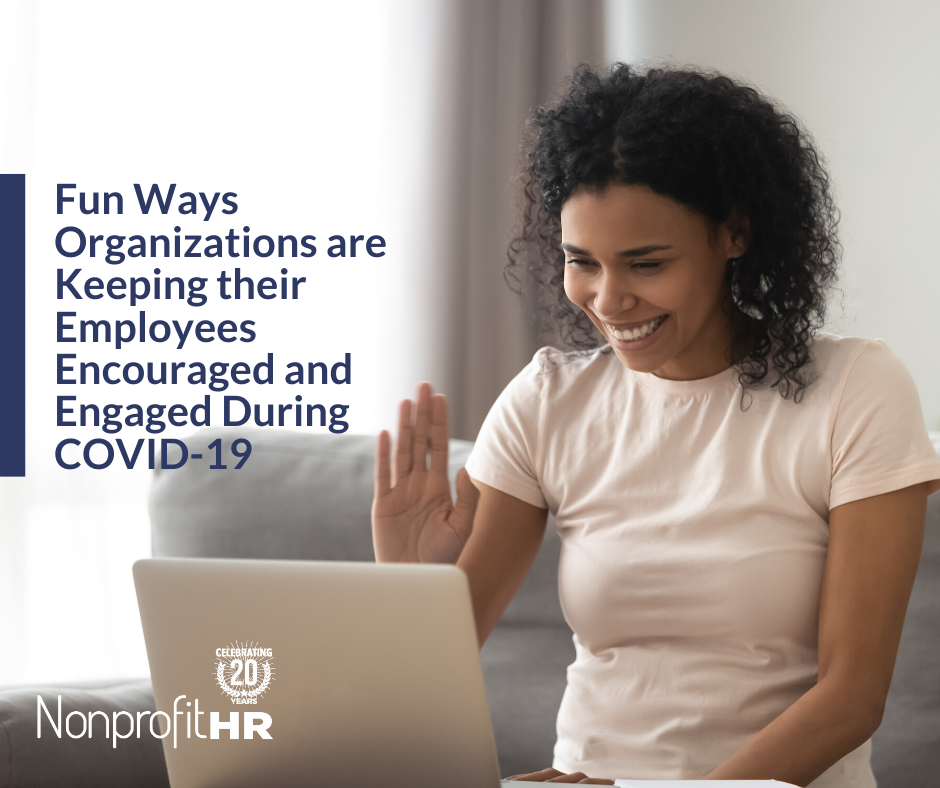WTOP: 5 ways nonprofits can…
In the nonprofit sector, it’s essential to understand what leadership style will work best for your organization. Based on your organizational needs, you’ll need to develop a recruitment and hiring strategy that targets the leaders who are best equipped to lead, promote and innovate.
By 2020, millennials will account for nearly half of the US workforce. Born after 1980 and before 2000, these young professionals are the largest and most interconnected generation working and leading organizations today. They may have less experience than their older coworkers, but idealistic, driven millennial leaders are well-positioned to bring fresh perspective and innovative thinking to your organization.
How do you know if your nonprofit is ready for millennial leadership? Read on to find out.
You’re ready to take risks.
As expressed in “The 2015 Millennial Majority Workforce,” millennials have the entrepreneurial skills and innovative spirit that so many organizations today want. This daring attitude, combined with a desire to fast-track their careers and an expectation of quick movement through organizations where they work, make millennials the ambitious leaders who can transform organizations. While some naysayers see this willingness to accept risk as a negative, it can be a valuable business skill for nonprofit leaders. Impatient leaders often expect great things and are willing to put in the effort and try unconventional strategies to get there. If your organization needs a new start, a millennial leader may be able to inspire needed change.
You’re looking to increase collaboration.
Millennials want to work with people from diverse backgrounds and walks of life. Are you looking to align your direct services staff with development and operations departments? Or start a joint project requiring input from teams that don’t normally work together? A millennial leader may be just the person to help you guide such a project to fruition.
If you feel like your organization isn’t as collaborative or integrated as it should be, or if you’re looking to establish new partnerships with outside stakeholders, consider engaging an emerging millennial leader to make those collaborations happen.
You’re committed to increasing your social impact.
The nonprofit sector is already attractive to many skilled millennials, as this generation is, almost above all, motivated by making a lasting impact. Whether you’re a foundation looking to maximize the amount of funding or support you’re able to give to a cause or if you want to further motivate your employees around a key aspect of your mission, a millennial leader could have the right amount of impact-minded drive to bring about the needed change.
How are you engaging millennial leaders?
Millennials have been setting their sights on the nonprofit sector for years. Attracted to the purposeful missions of these organizations, millennials are looking to get involved in nonprofit work: so how do you seal the deal and reach out to this new generation? Here are some ways:
- Update your succession plans. Identify current challenges and those that lie ahead, and determine where you expect to have gaps in your leadership team in the next few years. Then, engage your millennial employees in meaningful discussions about how they may fill these gaps in the future and what they need to do to develop themselves professionally in order to get there.
- Cultivate your current millennial talent. Through professional development, encourage leadership skills in the millennial workforce you already employ. They’re hungry to move up the ranks of your organization: provide them the tools to do so.
- Encourage a collaborative environment. Foster an open, creative culture to appeal to millennials and engage them in your work. When you provide opportunities to work across departments and collaborate with others, you’ll be better equipped to attract the millennial generation of leaders.
- Be willing to approach the work of your organization differently. While your mission and purpose may be well defined, how you accomplish that mission may need to change. Engage a task force or focus group of emerging leaders in rethinking how your organization does its work. The goal is not change for change sake but increasing efficiency, outcomes and impact. An out of the box millennial leader who isn’t wedded to the status quo can help you get there faster.
Let us know: are you ready to embrace millennial leadership? How are you fostering the development of leadership skills among your most promising millennial employees?





























